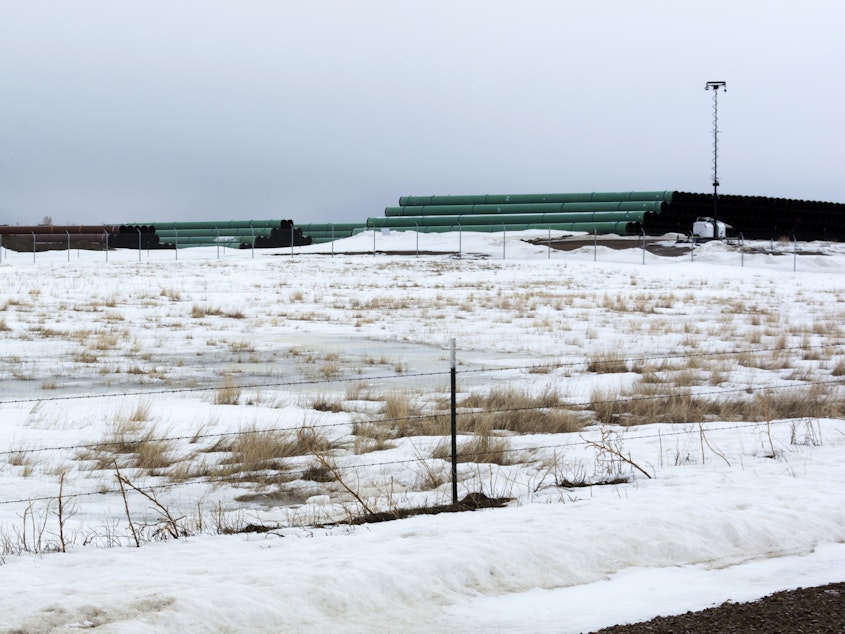Developer Abandons Keystone XL Pipeline Project, Ending Decade Long Battle

The company behind the controversial Keystone XL oil pipeline says it's officially terminating the project. TC Energy already had suspended construction in January when President Biden revoked a key cross-border presidential permit. The announcement ends a more than decade-long battle that came to signify the debate over whether fossil fuels should be left in the ground to address climate change.
Environmentalists opposed the pipeline in part because of the oil it would carry— oil sands crude from Alberta. It requires more processing than most oil, so producing it emits more greenhouse gases.
TC Energy had begun construction on the pipeline last year and said about 300 miles of the $8 billion project had been built. It would have carried oil from land-locked Alberta to the American Gulf Coast.
Keystone XL supporters, including most of the oil industry, said the pipeline construction would have created much-needed construction jobs.
"It's unfortunate that political obstructionism led the termination of the Keystone XL Pipeline. This is a blow to US energy security and a blow to the thousands of good-paying union jobs this project would have supported," said Robin Rorick, American Petroleum Institute vice president of midstream and industry operations.
Sponsored
Climate activists cheered the decision.
"For 13 years, an international movement of frontline communities in the U.S. and Canada, Indigenous leaders, and environmentalists fought back against this terrible proposed project at every turn," said Sierra Club executive director Michael Brune in a statement. "Today, we can say yet again, that our efforts were a resounding success." [Copyright 2021 NPR]


